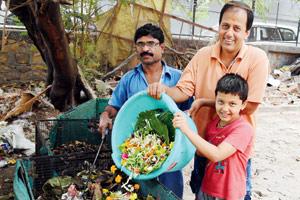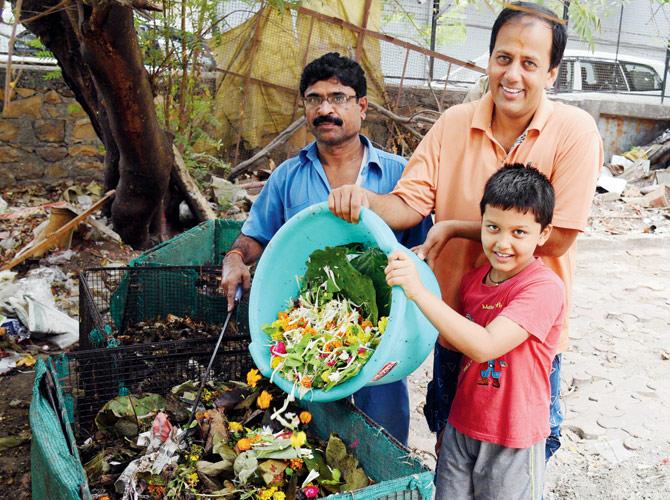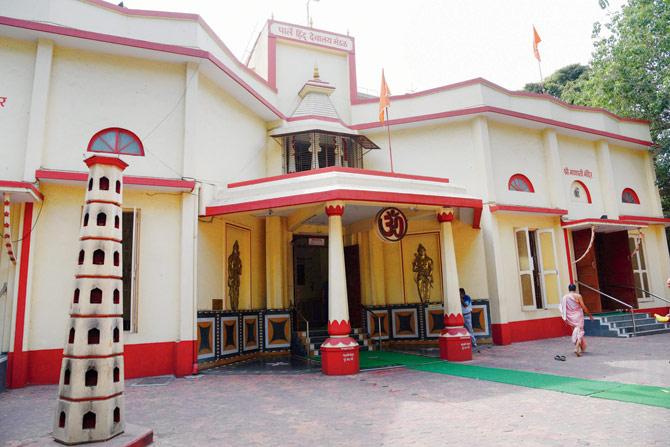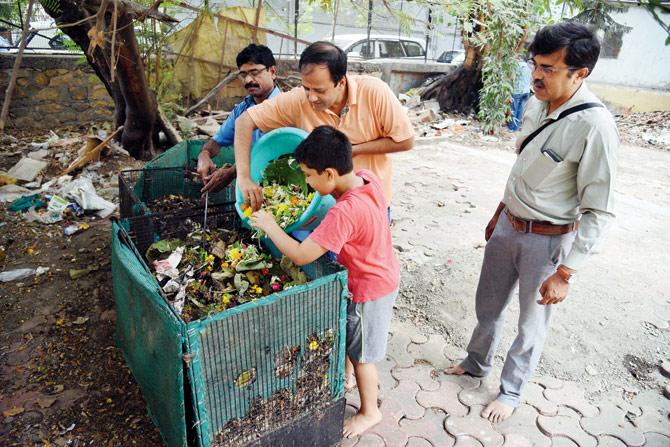Four temples set garbage composting example in their backyard for Mumbai to follow


ADVERTISEMENT
If the leafy stretch around Hanuman Road and Mahatma Gandhi Road in Vile Parle East is proving to be a much-needed canopy, a part of the credit goes to the temples in the area. The four "zero waste" temples - Parleshwar Mandir, Mahalakhmi Mandir, Ram Mandir and Datta Mandir - have installed compost bins that convert offerings made by devotees, such as flowers, coconuts, sweets and ghee, into manure.
The initiative was mooted by the Swachh Parle Abhiyan, a citizens' initiative to achieve zero garbage in Vile Parle by segregating garbage at source. While the 105-year-old Parleshwar Mandir was the first to implement this two years ago, the Datta Mandir is the latest to join the fray, by installing a compost bin three months ago. The pits have been installed in the temple premises itself. "The offerings are considered holy so people are wary of dumping it in the garbage once they wither.

The three composting bins at Parleshwar temple. Pics/Shadab Khan
Throwing it in the water bodies is not right either from an environmental point of view. That's when we thought of compost bins. It's easy and benefits the eco-system," says Aniket Karandikar, a member of Swachh Parle Abhiyan, a group that has been overseeing the process. When the team approached the trustees of the temples, they were more than happy to implement it, he adds.

Every month, the Parleshwar Mandir generates seven sacks worth of manure which is then distributed for free. The Parle Vruksha Mitra, a local movement that aims to protect, preserve and grow new trees, has utilised the manure generated from the temples to plant 100 trees in the last one year. "Disposing the 'nirmalya' (floral offerings) is always a challenge. Earlier, it would be directed to a litter dump that the municipality had arranged for, and that was purely going waste. So when the Abhiyan members approached, we were happy to give it a try," says Anil Ghanu, one of the trustees of Parleshwar Mandir. The compost bin, that costs somewhere between Rs 10,000 to Rs 14, 000, works on the principle of aerobic composting, wherein the container is dotted with aeration holes which break down the organic material faster.
For now, Karandikar says the effort is to encourage people to also do it on an individual level - 20 housing societies in Vile Parle have already begun composting waste.
Also read - Mumbai: KEM Hospital converts dry waste into compost
Catch up on all the latest Mumbai news, crime news, current affairs, and also a complete guide on Mumbai from food to things to do and events across the city here. Also download the new mid-day Android and iOS apps to get latest updates
 Subscribe today by clicking the link and stay updated with the latest news!" Click here!
Subscribe today by clicking the link and stay updated with the latest news!" Click here!






